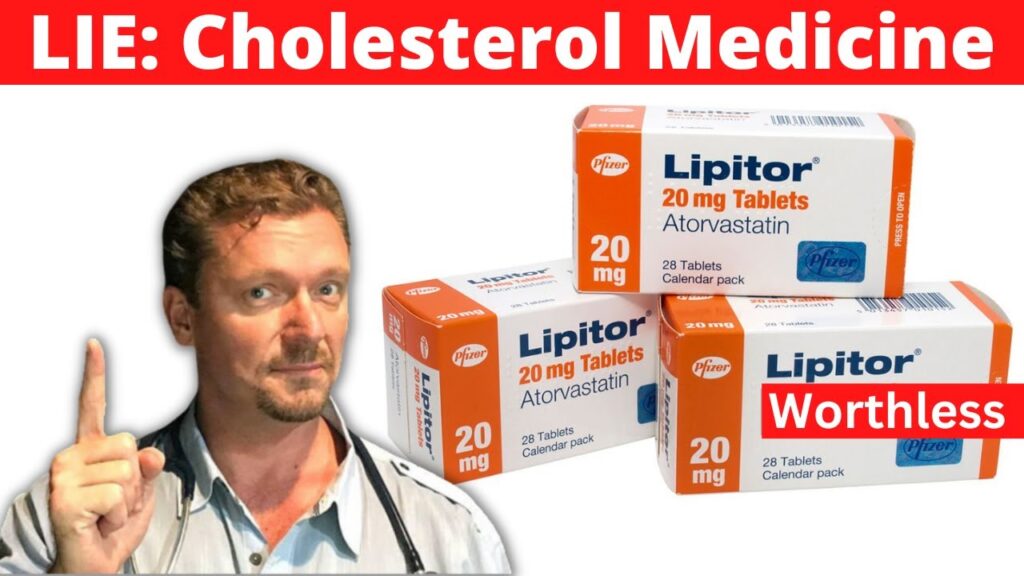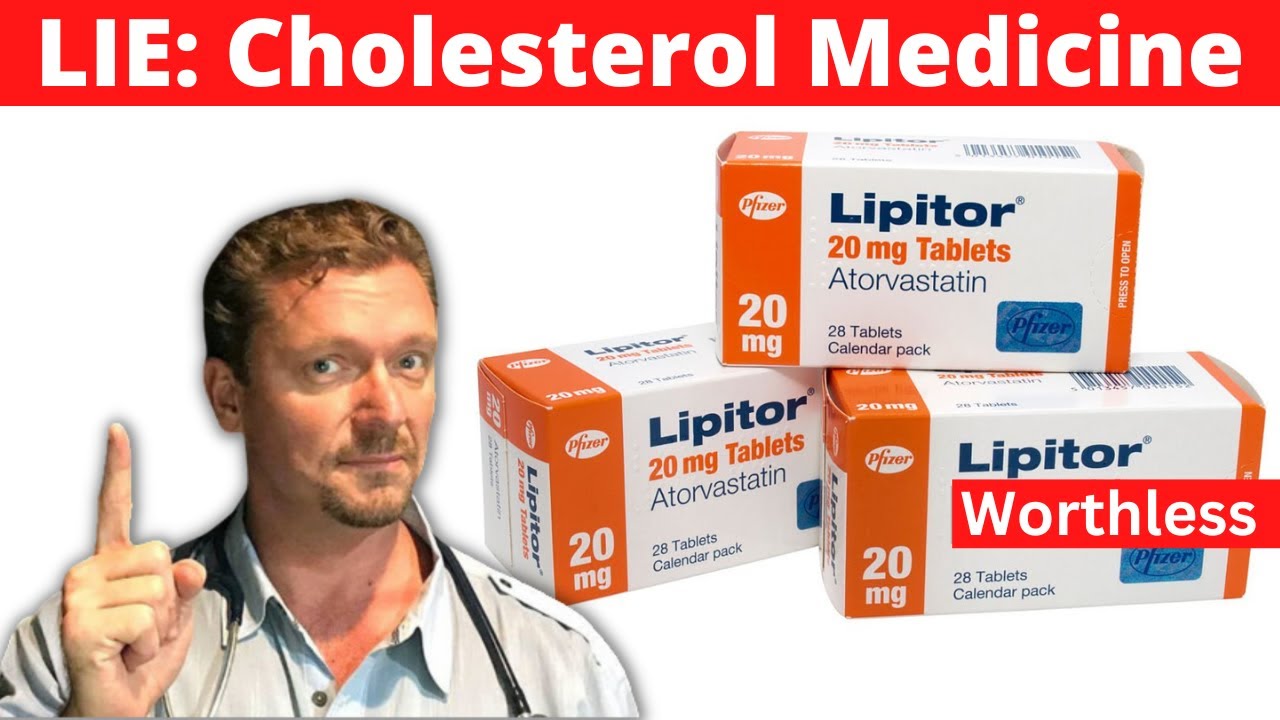Hey there! Have you heard about the latest study on statin drugs? It turns out that they may not actually protect you from heart attacks or strokes. The research from JAMA Internal Medicine sheds light on the truth about these cholesterol-lowering medications. The study found that there is minimal absolute risk reduction from statins, and they may even have side effects like lowering testosterone levels and raising blood sugar.
Before you continue or start taking statin therapy, it might be a good idea to discuss this study with your doctor. The findings suggest that unless you’ve had a previous heart attack, statins may not provide much clinical benefit. It’s important to be informed and make the best decisions for your health.

Overview of Statins and Cholesterol Medicines
If you’ve heard about statins but aren’t quite sure what they are or what they do, this article will provide a detailed explanation. Additionally, we will explore common cholesterol medicines besides statins to give you a comprehensive understanding of your options.
Detailed explanation of what statins are
Statins are a class of medications that help lower cholesterol levels in the blood. They work by inhibiting an enzyme in the liver that is crucial for cholesterol production. By reducing cholesterol levels, statins are often prescribed to lower the risk of heart disease and stroke.
Common cholesterol medicines besides statins
In addition to statins, there are other medications available to help manage cholesterol levels. These can include bile acid sequestrants, fibrates, and niacin. Each of these medications works in a different way to reduce cholesterol levels and improve heart health.
Previous Beliefs about Statins
For many years, statins were believed to be a wonder drug that could protect individuals from heart attacks and strokes. There was also a belief that statins could prolong life. However, recent research has challenged these long-standing beliefs.
Belief that statins protect from heart attack and stroke
It was widely believed that taking statins could significantly reduce the risk of heart attacks and strokes. Many individuals were prescribed statins as a preventive measure to protect their heart health.
Belief that statins prolong life
Another common belief was that statins could extend life expectancy by reducing the risk of cardiovascular events. This belief led many individuals to take statins with the expectation of a longer, healthier life.
Revelation from New Study in JAMA Internal Medicine
A recent study published in JAMA Internal Medicine has shed light on the true effects of statin drugs. The findings of this study challenge the existing beliefs about statins and their impact on health outcomes.
Findings of the study on statin drugs
The study found no consistent relationship between lowering LDL cholesterol with statins and the risk of death, heart attack, or stroke. This revelation has led to a reevaluation of the effectiveness of statins as a preventive measure for cardiovascular events.
No consistent relationship between lowering LDL cholesterol and risk of death
Contrary to previous beliefs, the study revealed that reducing LDL cholesterol levels with statins did not consistently lower the risk of death or cardiovascular events. This challenges the assumption that statins are a foolproof way to protect against heart attacks and strokes.
Minimal Absolute Risk Reduction from Statins
When it comes to the actual benefits of statins in terms of risk reduction, the numbers may surprise you. The absolute risk reduction from statins is minimal, with only a small percentage of risk reduction observed.
Range of absolute risk reduction with statins
Studies have shown that the absolute risk reduction from taking statins ranges from 0.4-1.3%. While this reduction may seem small, it has significant implications for individuals considering statin therapy.
Percentage of risk reduction from statins
The overall percentage of risk reduction from statins may not be as substantial as previously believed. Understanding the actual risk reduction numbers can help individuals make informed decisions about their cholesterol management.
Side Effects of Statins
In addition to their limited effectiveness in risk reduction, statins are also associated with various side effects that individuals should be aware of. These side effects can impact overall health and well-being.
Effect of statins on testosterone levels
One common side effect of statins is their impact on testosterone levels. For men, this can lead to a decrease in testosterone production, which may have implications for overall health and vitality.
Effect of statins on blood sugar levels
Statins can also affect blood sugar levels, which may be concerning for individuals with diabetes or those at risk of developing the condition. Managing blood sugar levels is crucial for overall health and well-being.
Independent Research on Statin Benefits
While statins have been widely prescribed for their supposed benefits, independent research has raised questions about their true efficacy. Understanding the limitations of statins is crucial for making informed decisions about cholesterol management.
Possibility of no benefit from statins based on research
Some independent research studies have suggested that statins may not provide any significant benefits in terms of cardiovascular outcomes. This challenges the traditional belief that statins are a necessary preventive measure for heart health.
Challenges in interpreting statin benefits
Interpreting the benefits of statins can be complex, especially when considering the conflicting findings from various research studies. It is essential to critically evaluate the evidence to make informed decisions about statin therapy.
Understanding Relative vs Absolute Risk Reduction
To make sense of the numbers associated with statin therapy, it is crucial to understand the concepts of relative and absolute risk reduction. Distinguishing between the two can help individuals better understand the true impact of statins on their health.
Explanation of relative risk reduction
Relative risk reduction refers to the percentage decrease in risk relative to the baseline risk. While relative risk reduction may sound significant, it is essential to consider the absolute risk reduction for a more accurate understanding of the benefits of statins.
Explanation of absolute risk reduction
Absolute risk reduction quantifies the actual reduction in risk associated with an intervention, such as taking statins. Understanding the absolute risk reduction can provide individuals with a clearer picture of the benefits of statin therapy.
Importance of distinguishing between the two in prescribing statins
In prescribing statins, healthcare providers must accurately communicate the relative and absolute risk reduction numbers to patients. By distinguishing between the two, individuals can make informed decisions about their cholesterol management and overall health.
Primary Prevention with Statins
While statins may have a role in primary prevention for individuals at risk of heart disease, understanding their clinical benefits is essential. Considering the implications of statin therapy for primary prevention can help individuals make informed decisions about their heart health.
Clinical benefit of statins in primary prevention
For patients without a previous heart attack, the clinical benefit of statins in primary prevention may be limited. Understanding the nuances of primary prevention with statins can help individuals assess the true impact of this therapy on their health outcomes.
Consideration for patients without previous heart attack
Individuals without a documented heart attack may need to carefully consider the potential benefits and risks of statin therapy for primary prevention. Discussing these considerations with a healthcare provider is crucial for making informed decisions about cholesterol management.
Discussion with Doctor before Initiating Statin Therapy
Before starting or continuing statin therapy, it is essential to have a discussion with a healthcare provider. Sharing new study findings and concerns about statin therapy can help individuals make informed decisions about their cholesterol management.
Importance of consulting with a doctor about statin therapy
Consulting with a doctor before initiating statin therapy is crucial for understanding the potential benefits and risks of this medication. Healthcare providers can provide personalized recommendations based on individual health needs.
Sharing new study findings with healthcare provider
Sharing the latest research findings on statins with a healthcare provider can facilitate an open and informed discussion about the most appropriate treatment options. Communicating concerns and preferences with a doctor is essential for achieving optimal heart health outcomes.
Conclusion
In conclusion, the truth about statins and cholesterol medicines may not be what you expected. The findings from new research studies challenge long-held beliefs about the effectiveness of statins in preventing heart attacks and strokes. It is crucial to approach cholesterol management with a critical eye and engage in informed decision-making when considering statin therapy for heart health. By discussing concerns with a healthcare provider and staying informed about the latest research, individuals can make empowered choices about their cholesterol management. Remember, your health is your priority, so take charge of your heart health with knowledge and informed decision-making.
